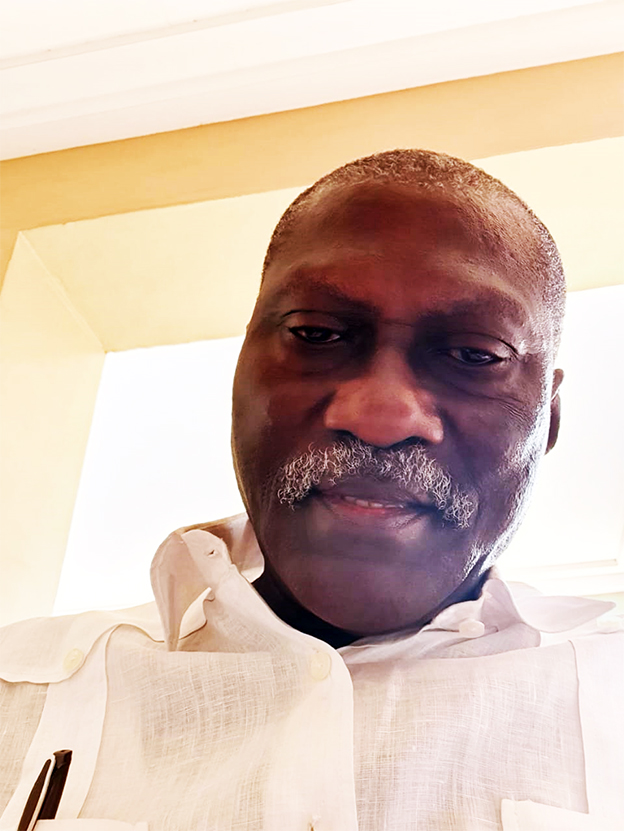On May 27, 2024, former Prime Minister of the United Kingdom, Rishi Sunak announced general elections to be held in the country. In accordance with the UK political system, a PM can call general elections at any time in his tenure and for several reasons. This could be to test his and the ruling party’s popularity, or consolidate the party’s position in power.
Once he made the call, the doors opened for electioneering to begin.
All that ended in six weeks. The elections were held on 4th July, 2024. By the next day, a new Prime Minister was already in office in a seamless transition. The beauty was in the changeover. Early morning on the 5th, the new PM, Keir Stammer was already operating from No. 10 Downing Street, meeting and announcing new Cabinet Ministers of his government.
It was impressive that everybody understood their role in the big picture. There was no ballot snatching; no electoral body bantering with political parties; no registration and re-registration of voters; no
bloody fights, no macho men wielding machetes. No incidents were recorded of registered voters who were unable to find their names at the polling stations where they had registered and expected to vote.
In all this, everything worked according to the established rules of engagement and within 24 hours of the vote, the new PM was in office. There was no transition period, therefore no joint transition committee. There was no elaborate Swearing-In, to which half the world leaders are invited to participate in what should reasonably be a one hour event.
All that matters is that Keir Stammer is Prime Minister of the United Kingdom, having been voted into office by the people.
In sharp contrast, people should cast their minds to the dear Republic of Ghana, where elections are either “all-die-be-die” or “boot-for-boot”, ”do or die” or, generally referred to in war and doomsday language.
Elections in Ghana have variously been compared to and threatened to be like the war in Afghanistan or the Arab Spring. The whole mindset about elections is so wrong that one would think it is such a nasty chore imposed on the nation by an irritating stepmother.
To start with, the 1992 Constitution mandates Presidential and Parliamentary elections every FOUR years. One would reason that the period of elections would center around just before the established date for the elections. Not so Ghana. Every day of the 4-year cycle is for electioneering.
How else can one explain that a party wins an election and straight away starts thinking about how to win the next election which is four years away. In the process, elections become an end in themselves, instead of providing an opportunity for service to the people now.
Consider the processes Ghanaians go through in order to vote. People have to get a Ghana Card, or assemble two registered voters to travel the distance to the district office of the Electoral Commission in order to register to vote.
In summary, one goes through any number of processes: registration, exhibition and verification of register, etc. Then comes the loud presence of an Electoral Commission that flaunts its ‘independence’ more than its integrity and fairness. A whole constituency can be barred from the electoral process by administrative bungling without redress.
Political campaigns in Ghana are from another world, are big time events and expensive, not like the town hall meeting types elsewhere. It is at these rallies that political actors usually pep up or incite their plebeian following into frenzy for anything goes. Are stories of vote buying, cash filled envelopes, bɛntoa, kako, television sets, etc all true?
When all’s done and an election has been conducted then the other shenanigans of beating/shooting to kill opponents, counting, collation of votes and the Oscar type announcement of results.
This is followed by a transition period of one month, normally. Some people refer to this transition period as an opportunity to hide files and conceal evidence, while the acrimony of the election festers into the transition with seizures of cars, public spaces and in many other areas/sectors subject to handing over.
Now, comes the Swearing-In of the new Parliament, just before the President is sworn in. The President must swear before Parliament. That should be a simple oath swearing event that shouldn’t last more than an hour.
There is a precedent in support of this assertion. Former President John Dramani Mahama was sworn into office the first time in the parliamentary chamber on 24th July 2012, upon the death of the late President Atta Mills. That was so simple and it harms no one to institutionalize it for its simplicity. No foreign guests to create a diplomatic nightmare, minimum expenditure with the same result.
Any observer from the UK who happens to see the way we do things about elections here will conclude that we make so much capital out of our elections to the detriment of governance, service to our people and development.
What is your view?
By Ambassador Kwame Tenkorang









